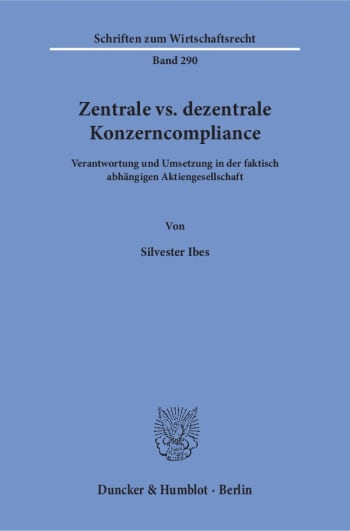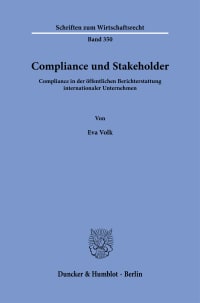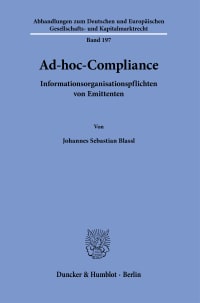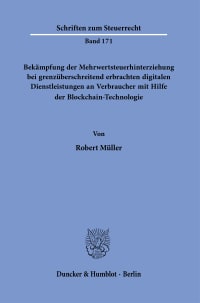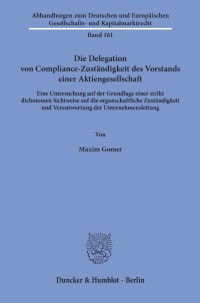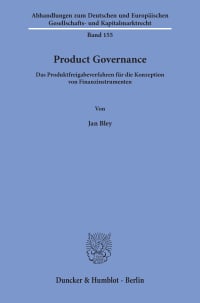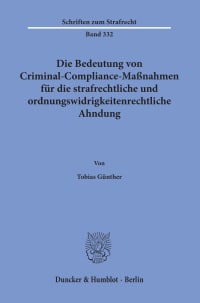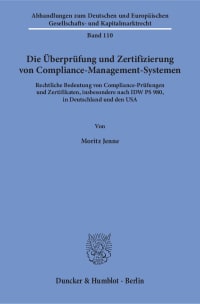Verantwortung und Umsetzung in der faktisch abhängigen Aktiengesellschaft
Description
»Centralized vs De-Centralized Compliance in a Group of Companies«
Despite the adverse intention of the law, parent companies are liable for Non-Compliance of their subsidiaries per EU-Antitrust regulations and extraterritorial reach of the UK Bribery Act and U.S. Foreign Corrupt Practices Act. This research proves that, although not addressed by German law, the parent company can and must take actions to overcome the existing restrictions of data protection and German Stock Corporation laws, and enforce a central compliance system throughout all group entities.
Overview
1. Einführung und Grundlagen
Einleitung – Grundlagen und Reichweite der Konzerncompliance – Rechtspflicht zur Konzerncompliance
2. Die Zurechnung von Complianceverstößen auf die Obergesellschaft
Haftungskonzepte bei Kartellverstößen und Korruption – Sanktionierung nach deutschem Recht – Der Konzern als wirtschaftliche Einheit im europäischen Kartellrecht – Verantwortlichkeit der Muttergesellschaft nach dem FCPA – Verantwortlichkeit der Muttergesellschaft nach dem UK Bribery Act – Ergebniszusammenfassung: Zurechnung von Complianceverstößen auf die Obergesellschaft
3. Implikation aus den Haftungskonzepten für die Unternehmens- und Complianceorganisation
Schadensabwendung von der Obergesellschaft – Notwendigkeit zentraler Elemente des Konzern-CMS – Ergebniszusammenfassung und Abwägung der Handlungsalternativen
4. Möglichkeit zentraler Konzerncompliance im dezentralen Konzern
Spannungsverhältnis zentraler Strukturen im faktischen Aktienkonzern – Bestandteile eines CMS – Veranlassung eines zentralen Konzern-CMS – Feststellung und Ausgleich von Nachteilen – Verortung von Konzerncompliance als Zentralfunktion in einer Matrixorganisation – Ergebniszusammenfassung: Möglichkeit der Errichtung eines Konzern-CMS
5. Fazit und Ergebnisse in Thesen
Literaturverzeichnis
Entscheidungsverzeichnis
Verzeichnis amtlicher Quellen und Materialien
Stichwortverzeichnis
